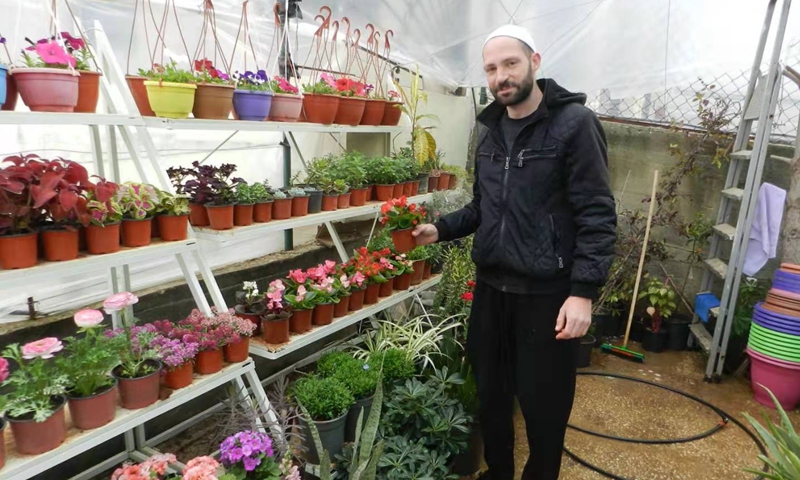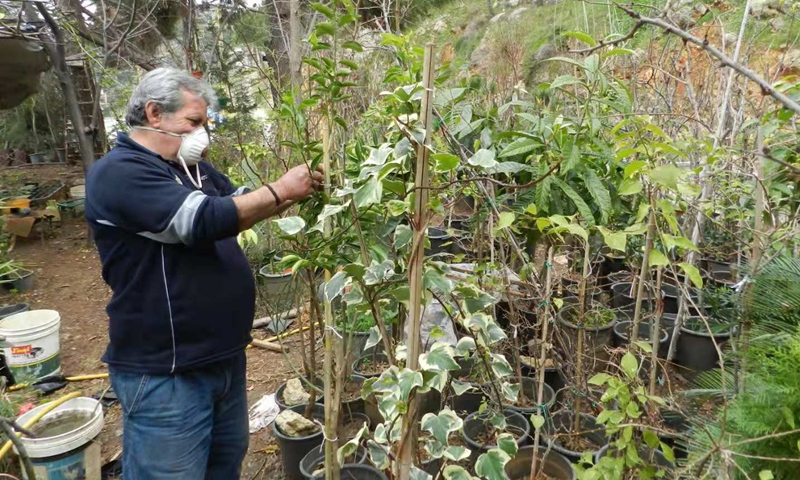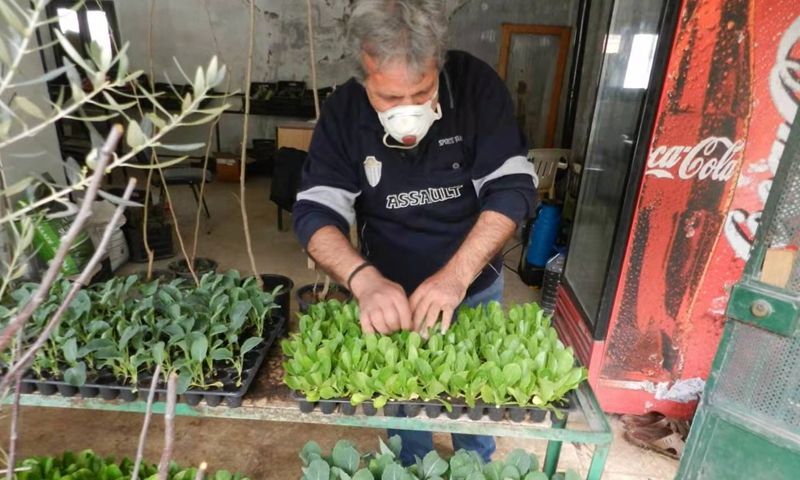
A Lebanese farmer takes care of his roses at his plantation on March 4, 2021 in Wadi Al-Khardali, southern Lebanon.(Photo: Xinhua)

A Lebanese farmer takes care of his roses at his plantation near the Wazzani River in southern Lebanon on March 4, 2021. (Photo: Xinhua)

A Lebanese farmer takes care of his roses at his plantation near the Wazzani River in southern Lebanon on March 4, 2021. (Photo: Xinhua)
Hassan Ziab, a Lebanese farmer in his 50s, gets busy every day taking care of his seeds, rose sprouts and vegetables in his 300-square-meter land in Wadi Al-Khardali, southern Lebanon.
"Extreme poverty has forced many Lebanese to work in uncultivated fields because it's the only remaining source that one can secure an acceptable income to meet part of the daily needs," Ziab said while irrigating his roses.
The farmer said the number of plantations increased remarkably because many rural people are making the best of their lands amid the current economic crisis the country is facing.
The number of officially registered plantations with investment licenses in the Nabatieh province, where Wadi Al-Khardali is located, reaches 321, said Hadi Makki, head of Nabatieh's agriculture department, adding that many of them were established in 2020.
Several incentive measures were given to farmers last year in an effort to revive the agriculture sector, which is the country's third-largest economic sector, contributing 7 percent to the national GDP, while securing an income for about 15 percent of the population, according to Lebanon's agriculture ministry.
Adel Hamdan, head of an agricultural cooperative that cares for trees, said that several municipalities in southern Lebanon, along with diverse associations, provided free support to farmers, in dredging and land reclamation, plowing, in addition to the distribution of seeds, fertilizers and other needed products.
The ministry also has been providing assistance, such as offering medicines, fertilizers, and agricultural machinery.
Several incentive measures were given to farmers last year in an effort to revive the agriculture sector, which is the country's third-largest economic sector, contributing 7 percent to the national GDP, while securing an income for about 15 percent of the population, according to Lebanon's agriculture ministry.
Adel Hamdan, head of an agricultural cooperative that cares for trees, said that several municipalities in southern Lebanon, along with diverse associations, provided free support to farmers, in dredging and land reclamation, plowing, in addition to the distribution of seeds, fertilizers and other needed products.
The ministry also has been providing assistance, such as offering medicines, fertilizers, and agricultural machinery.
With the help of the government, most of the farmers saw an increase in sales compared with previous years.
Hamid Badawi, a farmer in his 60s who owns a plantation near the Wazzani River in southern Lebanon, told Xinhua that the trade of fruit trees has flourished as agriculture is going through a revival in the rural areas.
"Our sales of fruit trees and various seedlings of vegetables and roses increased by around 42 percent compared with last year, despite the overall worsening economic situation in the country," he added.
For his part, Shady Fahs, who works in one of the plantations of the town of Jibsheit in southern Lebanon, told Xinhua that he has been working in plantations for many years, but this year's season was the best and the sales increased by more than 40 percent.
Meanwhile, Sawsan Sharrouf, head of the Wouroud Association in the town of Hasbaya in southern Lebanon, told Xinhua that home quarantine has prompted people to spend more time cultivating flowers and decorating their homes, which increased the demand for flower sprouts and other agricultural products.
